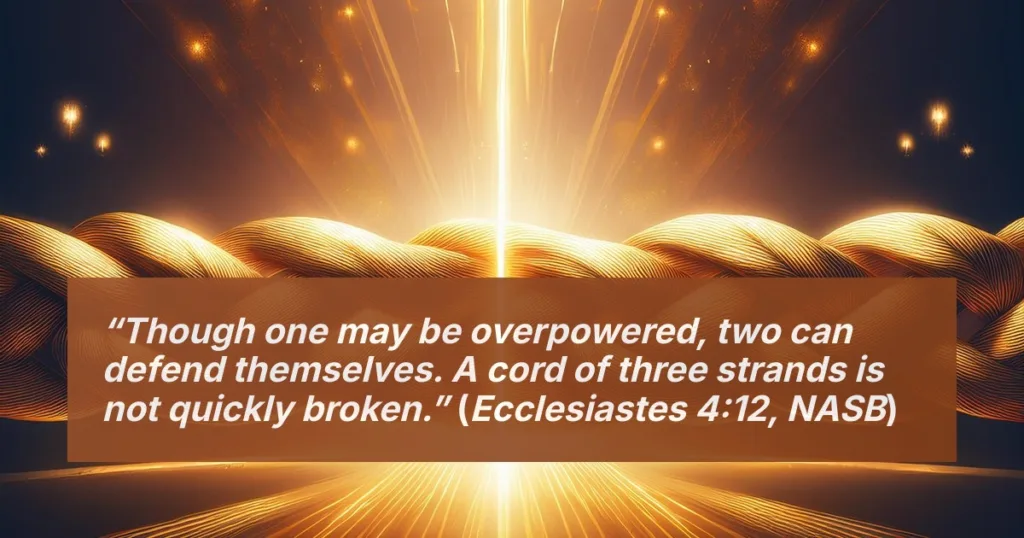God’s Word Will Not Return Void
“For you will go out with joy and be led forth with peace;
The mountains and the hills will break into shouts of joy before you,
And all the trees of the field will clap their hands.
Instead of the thorn bush, the cypress will come up,
And instead of the stinging nettle, the myrtle will come up;
And it will be a memorial to the Lord,
An everlasting sign which will not be eliminated.” – Isaiah 55:12-13 (NASB)
Prayer has the power to transform lives, families, and generations. God’s promises are unshakable, and every prayer lifted in faith is like a seed planted in good soil. This is a prayer that transforms situations. Just as rain nourishes the earth, bringing life and abundance, so does God’s Word when spoken in prayer (Isaiah 55:11). It will accomplish what He has sent it to do. No prayer is wasted. When you pray, you are declaring God’s truth over your circumstances, your family, and future generations.
The Power of United Prayer
Jesus said, “For where two or three have gathered together in My name, I am there in their midst” (Matthew 18:20, NASB). When believers unite in prayer, heaven moves. The enemy works to divide, but prayer brings the Church together, aligning hearts with God’s will. This united prayer is another example of a prayer that transforms situations. Now is the time to stand in unity—to pray for revival, for families, and for the next generation. Our prayers are not just for today but for the future.
Generational Prayers Bear Fruit
The prayers you pray today will outlive you. Abraham’s faith led to blessings for Isaac and Jacob. Hannah’s prayer for a son brought forth Samuel, a prophet who anointed kings. The prayers of the righteous echo across generations, shaping destinies. Many of us are walking in blessings today because someone before us prayed. Likewise, the prayers you sow now will bring a harvest in due season. These are prayers that transform the future.
God’s Promise: Transformation and Renewal
God does not leave things the way they are. Where there were thorns, He raises up cypress trees. Where there was barrenness, He brings beauty (Isaiah 55:13). Prayer is a declaration of faith in that promise and is a prayer that transforms lives. No matter how hopeless things seem, God’s Word is at work. What looks like loss today will become an everlasting sign of His faithfulness.
A Call to Pray Without Ceasing
Do not grow weary. Do not allow doubt to silence you. Keep praying. Keep believing. God hears every word, and His promises will not fail. Lift up your family, your church, and your city in prayer, knowing that you are engaging in a prayer that transforms. Stand in unity with other believers, knowing that the mountains will rejoice, the trees will clap their hands, and revival will come.
A Prayer for Unity and Revival
Father, we declare that Your Word will not return void. Let our prayers rise before You as incense, bringing transformation to families, churches, and nations. This is our prayer that transforms. We pray for unity in the Church and a great outpouring of Your Spirit. Let every thorn be replaced with cypress, every brier with myrtle. Establish Your name as an everlasting sign. In Yeshua’s name, Amen.
Now go forth with joy. Keep praying with the belief in the power of every prayer that transforms. God’s Word is at work.












